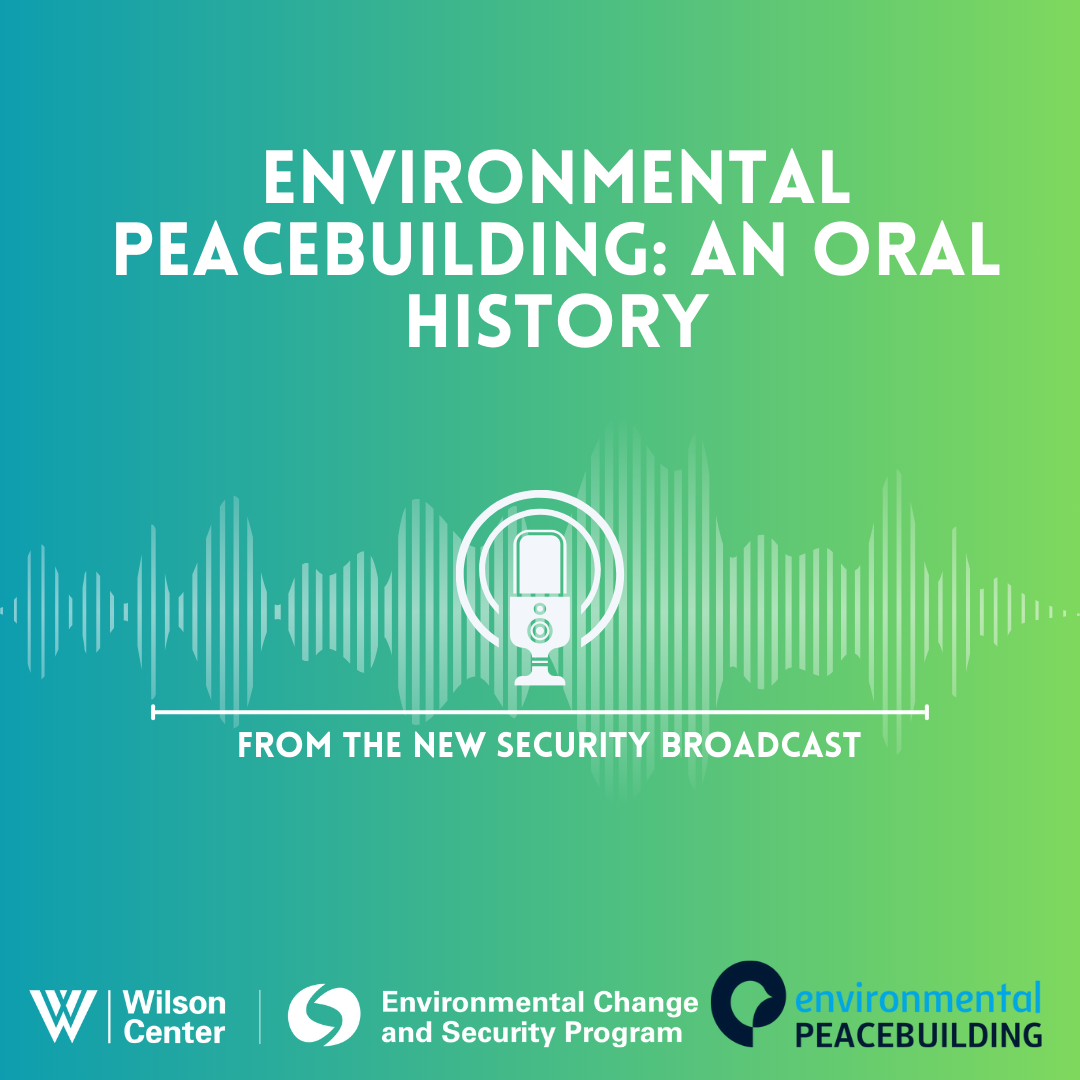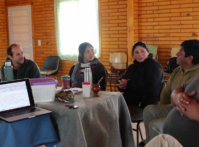-
Thought-leaders and Frontline Workers in Environmental Peacebuilding: An Oral History | Carl Bruch
July 26, 2024 By Claire Doyle In this episode of New Security Broadcast, ECSP’s Claire Doyle speaks with Carl Bruch, Senior Attorney and Director of International Programs at the Environmental Law Institute and the founding President of the Environmental Peacebuilding Association. Bruch is a recognized expert on environmental governance and environmental peacebuilding around the world, having worked to provide legal assistance and capacity building in dozens of countries throughout the Americas, Asia, Africa, and Europe. And he has been a key leader in the field of environmental peacebuilding, from the early conversations and visioning to the growing traction of the field today.
In this episode of New Security Broadcast, ECSP’s Claire Doyle speaks with Carl Bruch, Senior Attorney and Director of International Programs at the Environmental Law Institute and the founding President of the Environmental Peacebuilding Association. Bruch is a recognized expert on environmental governance and environmental peacebuilding around the world, having worked to provide legal assistance and capacity building in dozens of countries throughout the Americas, Asia, Africa, and Europe. And he has been a key leader in the field of environmental peacebuilding, from the early conversations and visioning to the growing traction of the field today. In this episode of New Security Broadcast, ECSP’s Claire Doyle speaks with Carl Bruch, Senior Attorney and Director of International Programs at the Environmental Law Institute and the founding President of the Environmental Peacebuilding Association. Bruch is a recognized expert on environmental governance and environmental peacebuilding around the world, having worked to provide legal assistance and capacity building in dozens of countries throughout the Americas, Asia, Africa, and Europe. And he has been a key leader in the field of environmental peacebuilding, from the early conversations and visioning to the growing traction of the field today.
This episode is hosted in partnership with the Environmental Peacebuilding Association, as part of a special series featuring thought-leaders and frontline workers in Environmental Peacebuilding. Through interviews with a range of experts, the series explores how the field of Environmental Peacebuilding first emerged and how it’s being shaped by new approaches and new voices.
Select quotes from the conversation are featured below:
On acknowledging the environment’s peacebuilding potential
“At the time, environmental security was really about the threats, what are the environmental threats to security? We wanted something that recognized the opportunities that the environment and natural resources provided to bring people together, to provide for basic services and build confidence.”
On environmental peacebuilding as a ‘meta field’
“One of the things about the field is that it really is a meta field, it brings together all these different threads, whether it’s water wars, or climate security, or conflict resources, or cooperation. The recognition is that there are linkages between environment, conflict, and peace, and humanitarian and development, and all these other spheres–that there is a very integrated set of considerations.”
On choosing the term ‘environmental peacebuilding’
“We wrestled with ‘environmental peace’ [versus] ‘environmental peacebuilding.’ We thought that the process–that is to say environmental peacebuilding–was what we wanted to emphasize. How do we build peace? Rather than ‘here’s our ideal aspiration of where we want to be,’ [the question was] how do we get there?”
On creating a convening space for people working on environment and peace
“We realized that there was a real hunger for a space where people could come together to talk about environment, conflict, and peace. Most of the people [were] working on the margins of their respective areas. The environmentals who were working on this and working with military and security, they [were] different from a lot of the other environmental actors who don’t think about conflict or peace or security. (…) The military actors who were working on this were very much on the margins of the military. (…) So you had all these people operating on the margins of their respective sectors, who were working in this space.”
On the future of environmental peacebuilding
“It’s hard to say, what the long term future is because so much depends on what we do today. And then in a year, then in three years–you bring other people in, and you get inspired, and you do something else that’s not on the agenda.
“If had said, five years ago, here’s our plan, and we need to stick to the five-year plan, we would not have done all the things on the five-year plan, and we would have missed a lot of opportunities. I think all the consultation and the engagement of different people (…) is huge, being receptive to their ideas, empowering them, being curious and asking questions. And you realize, wait a minute, there isn’t an answer here, maybe we should find one. I mean, it doesn’t fit the narrative that we have, [that] we can’t make progress unless we have a clear action plan.”
Photo Credit: Wilson Center Staff
 A Publication of the Stimson Center.
A Publication of the Stimson Center.







